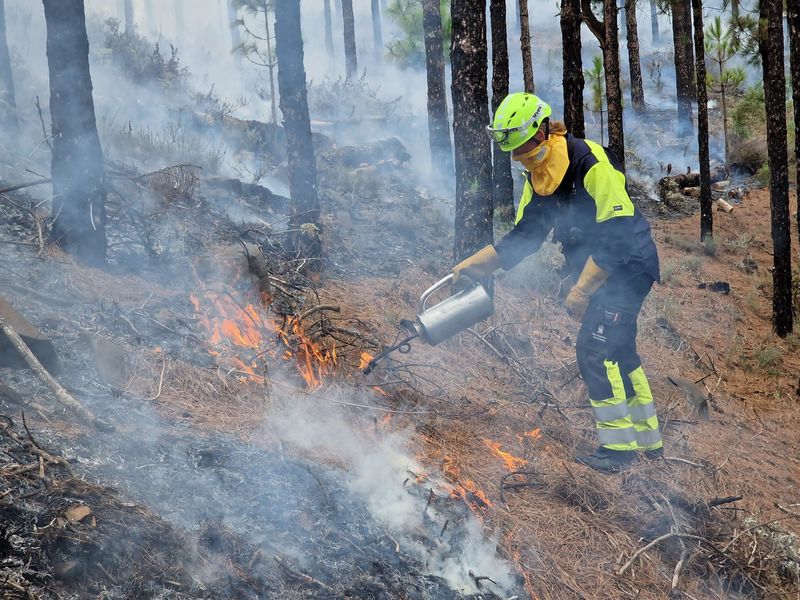Faced with the growing effects of climate change, our landscapes and environments are increasingly vulnerable. For this reason, it is essential to improve the adaptation and resilience of the landscape and to understand how it can contribute to the effective mitigation of the impacts of climate change, such as wildfires and drought.
Within this framework, the Participatory workshop “A resilient territory in the Baix Llobregat, Penedès and Anoia” has taken place on 31 October at the headquarters of the Baix Llobregat County Council, in Sant Just Desvern (Barcelona), with the aim of analysing territorial management models, their resilience and adaptation to the risks of climate change, as well as the identification of limitations and needs.

The workshop is one of the activities of the Catalan LandLab, within the European project ResAlliance. The collection of knowledge and experiences of the workshop will be used to share good practices together with the other LandLabs in the Mediterranean: Sardinia (Italy), Peoloponès (Greece), Cyprus, and Regiao Norte (Portugal) to have more resilient landscapes to cope with disturbances such as wildfires, drought, recurrent winds, and frost among others.
“The workshop we have done in the framework of the Catalan LandLab is a co-creation space to share, transfer, and scale solutions between actors who develop their professional activity in the agricultural and forestry sectors. Within the project, there is a committee of ambassadors from each LandLab where the results of each LandLab will be shared and the exchange actions planned for other phases of the project will be planned”, comments David Martín, Project Technician from Pau Costa Foundation, coordinator of the project´s LandLabs and ambassador of the Catalan LandLab.

The five Mediterranean regions in which ResAlliance focuses share threats that represent typical Mediterranean dangers and that are exacerbated by climate change, especially wildfires and droughts, but each region has specific social needs and agricultural and forestry challenges that require solutions to size. The activities that are carried out in the LandLabs, with different participatory formats, such as workshops, field trips, events, etc., provide knowledge, skills and innovative solutions that will result in a document of good practices that will serve to implement actions that contribute to the creation of resilient landscapes.
“This workshop has been a starting point to create a network between the various actors of Baix Llobregat, Penedès and Anoia. From ResAlliance, we will take the needs of the territory to the European lever so that policies can be generated that allow the implementation of key actions and activities to have landscapes resilient to climate change” says Mariona Borràs, Head of Membership & Community Engagement from Pau Costa Foundation, coordinator of the project’s LandLabs and ambassador of the Catalan LandLab.

The workshop was organised by the Centre de Ciència i Tecnologia Forestal de Catalunya (CTFC), Institut de Recerca i Tecnologia Agroalimentàries (IRTA) and Fundació Pau Costa (FPC) with the collaboration of the Baix Llobregat County Council. Nearly 60 professionals, collectives, organisations, and other entities from the agricultural and forestry sectors, within the scope of Muntanyes del Baix Llobregat, Penedès, and Anoia, participated in the event.






